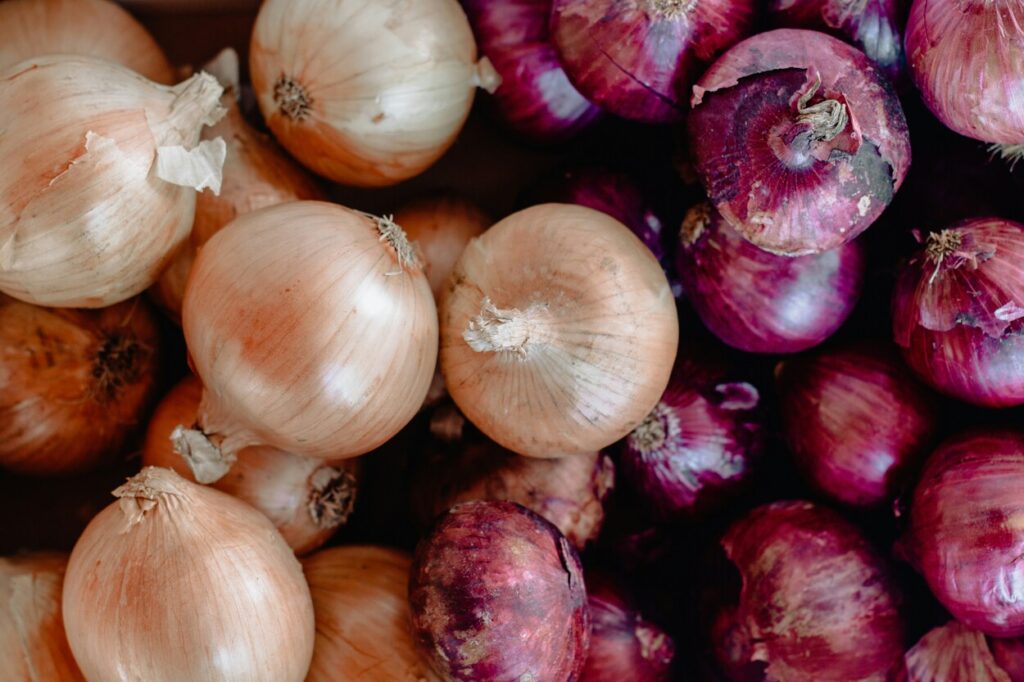Climate change is significantly affecting global agriculture, and onion production is no exception. As a staple ingredient in cuisines worldwide, onions play a crucial role in the global food supply chain. For exporters like Amaze International, ensuring stable onion yields is essential to maintaining quality and meeting market demands.
This article explores how climate change is impacting onion farming, the challenges farmers face, and sustainable adaptation strategies that can help secure future production.
Global Overview of Onion Production
Why Onions Matter in Agriculture
Onions are among the most widely cultivated vegetables globally due to their economic and nutritional significance. They are rich in antioxidants, vitamins, and essential minerals, making them a vital component of a healthy diet.
Top Onion-Producing Countries
Major onion producers include:
- India – One of the largest exporters, facing challenges due to erratic weather patterns.
- China – A leading producer but struggling with water scarcity.
- USA – Adaptation strategies are crucial in states like California and Texas.
- Netherlands – Innovations in onion storage and climate-resilient farming.
Ideal Growing Conditions
Onions require well-drained soil, moderate temperatures (12–25°C), and consistent moisture levels for optimal growth. However, climate change is disrupting these conditions, affecting global onion production.
How Climate Change Affects Onion Growth
Temperature Fluctuations
- Onions are highly temperature-sensitive, and rising global temperatures can lead to premature bolting (flowering), reducing bulb size and overall yield.
- Warmer conditions can shorten the growth cycle, leading to lower-quality onions.
Water Availability & Drought Stress
- Erratic rainfall patterns and increased evaporation contribute to water scarcity, impacting onion farming.
- Drought-resistant onion varieties and efficient irrigation methods can help counteract this issue.
Extreme Weather Events
- Heavy rainfall and storms can damage crops, delay harvesting, and cause fungal diseases.
- Flooding in major onion-producing regions has led to market shortages, affecting exporters like Amaze International.
Pests & Diseases
- Warmer temperatures and increased humidity create a favorable environment for thrips, nematodes, and fungal infections.
- Adopting Integrated Pest Management (IPM) can help control these risks.
Adaptation Strategies for Sustainable Onion Farming
1. Developing Climate-Resilient Onion Varieties
- Research institutions are working on heat and drought-tolerant onion varieties to withstand extreme weather conditions.
- Adoption of disease-resistant hybrids can reduce dependency on pesticides.
2. Efficient Irrigation Methods
- Drip irrigation and mulching techniques help optimize water usage.
- Farmers in India and the USA are shifting to smart irrigation systems that monitor soil moisture levels.
3. Adjusting Crop Management Practices
- Altering planting schedules to avoid extreme heat periods.
- Using protected cultivation methods like greenhouse farming for better temperature control.
4. Integrated Pest & Disease Control
- Implementing biological control agents instead of chemical pesticides.
- Crop rotation and organic soil treatments to prevent disease build-up.
Case Studies: How Countries Are Adapting
India: Managing Erratic Monsoons
- Farmers are adopting drought-resistant onion varieties and shifting to precision irrigation techniques.
- Government initiatives support farmers through minimum price guarantees and climate adaptation subsidies.
USA: Technological Innovations in Onion Farming
- Smart irrigation systems and satellite monitoring are helping US farmers optimize water usage.
- Large-scale onion farms in Texas and California are experimenting with vertical farming for climate-controlled production.
Netherlands: Leading in Climate-Resilient Onion Storage
- The Dutch onion industry has innovative cold storage solutions to extend shelf life.
- Automation in farming helps minimize climate-related disruptions in production.
Future Outlook for Onion Production Amid Climate Change
Advancements in Research & Innovation
- Scientists are developing genetically improved onion strains to withstand climate fluctuations.
- AI-driven climate prediction models are helping farmers anticipate weather changes.
Role of Government Policies & Industry Support
- Countries like India and the EU are investing in sustainable agriculture grants.
- Exporters like Amaze International can collaborate with farmers to implement climate-resilient practices.
Conclusion: Securing Onion Production for the Future
The impact of climate change on onion farming is undeniable, affecting yield, quality, and supply chains. However, adaptive strategies such as drought-resistant varieties, water-efficient farming, and technological innovations can help secure future production.
For exporters like Amaze International, staying ahead in climate-smart agriculture is key to maintaining quality and market competitiveness.
